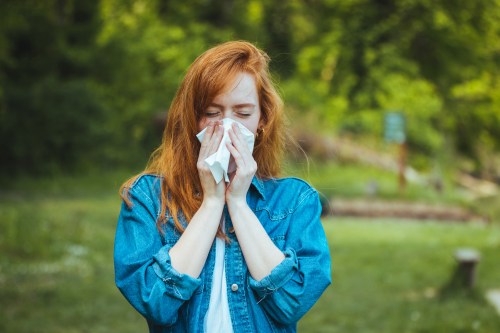Maybe you noticed it while chewing. Or maybe your tongue rubbed up against the side of your mouth and you felt it: a small bump on your tongue. Though your doctor can tell you for certain, what you’re feeling may be a tongue wart.
Experts in This Article
director of cosmetic and clinical research in dermatology and associate professor of dermatology at Mount Sinai Hospital
These bumps of flesh usually go away on their own and don’t require treatment, says Maya Thosani, MD, a dermatologist based in Arizona. Also good: “They typically do not cause discomfort,” she says.
Still, it’s always worth checking in with your doctor if you think you may have a tongue wart (or a wart anywhere else inside or around your mouth). That’s because these types of warts are caused by a common sexually transmitted infection, and your doc can monitor your symptoms to make sure the infection doesn’t become more serious.
Read on for more about tongue warts, including how to tell them apart from cold sores and canker sores and how they’re connected to HPV.
So, what causes warts on the tongue?
Tongue warts are caused by a strain of human papillomavirus (HPV) known as oropharyngeal (oral) HPV. Many strains of HPV can lead to oral HPV. In fact, this sexually transmitted infection is so common that most of us will have some form of HPV during our lifetime: There were 43 million HPV infections in the U.S. in 2018, the last year data was available, according to the Centers for Disease Control and Prevention (CDC), and around 13 million Americans are infected each year.
HPV is spread through kissing or oral, vaginal, or anal sex. “Warts develop as a result of direct contact with the virus, so when it develops in the mouth, it usually is through intimate contact such as from kissing,” says Joshua Zeichner, MD, an associate professor of dermatology and the Director of Cosmetic & Clinical Research in Dermatology at Mount Sinai Hospital in New York.
The virus doesn’t always cause symptoms, but people who are infected may notice warts in their mouth or on their genitals. In the genital area, HPV warts can be small or large; shaped like a cauliflower; raised or flat; and they may appear as a cluster or individually. If you have oral HPV, you may develop warts or sores on your tongue, lips, or inner mouth.
Most of the time, your body will clear oral HPV (as well as the other types) within a few years. In fact, 9 out of 10 HPV cases resolve on their own, according to the CDC. But very rarely, HPV can lead to cancer. Oral HPV can cause oropharyngeal cancer, which develops in the back of the throat, and other types can cause cervical cancer or cancers of the vagina, penis, anus, or vulva.
Tongue warts vs. canker sores vs. cold sores: What’s the difference?
All three of these are small bumps that can crop up inside or around your mouth, but they have very different causes. Here’s what to know about each:
- Tongue warts are caused by oral HPV and can resemble small bumps or sores on your tongue. People with oral HPV may also have warts on their lips or other areas of the mouth. There’s no treatment for oral HPV (it almost always goes away on its own), but your doctor can remove any particularly stubborn tongue warts.
- Cold sores are a possible symptom of herpes simplex virus type 1 (HSV-1) or herpes simplex virus type 2 (HSV-2), viral infections that can be spread through sex or skin-to-skin contact, according to the Mayo Clinic. Cold sores look like small, fluid-filled blisters on the lips. Though there’s no treatment, medication can help manage an outbreak.
- Canker sores are a little different from tongue warts and cold sores in that they’re not caused by a virus, which means they’re not contagious. Although experts don’t know exactly what causes canker sores, these lesions appear to be linked to stress, smoking, nutritional deficiencies, or injury or friction in the area. Most go away in a week or two, per the Mayo Clinic.
How to treat tongue warts
Luckily, “tongue warts usually resolve on their own,” says Dr. Thosani. You can encourage faster healing by chewing on the other side of your mouth to avoid biting or irritating the wart, she adds.
Sometimes, though, warts in this area can take a little longer to heal. If you have a tongue wart that isn’t going away or continues to get larger and increasingly painful, let your doctor know. According to Dr. Thosani, your practitioner may recommend cryosurgery (which uses liquid nitrogen to freeze and destroy the wart’s cells), surgical removal, electrocautery, or laser treatment.
However, while the wart itself can be treated, there isn’t treatment available for the virus that causes these warts to develop—so you may continue to notice others until your body clears itself of the virus.
How to prevent tongue warts
The best way to prevent tongue warts is to take steps to protect yourself from all types of HPV. That includes:
- Using barrier methods during sex, such as condoms or dental dams
- Avoiding oral sex and deep kissing if your partner has an open cut or sore on their mouth
- Having regular STI screening tests if you’re sexually active
- Discussing STI status with your sexual partners, and encouraging them to get tested, too
- If you’re age 26 or younger, getting the HPV vaccine (according to the CDC, this vaccine may sometimes be appropriate for people between ages 27 and 45; if you didn’t receive it when you were younger, discuss your options with your doctor)
When to see a doctor
If you find a wart on your tongue for the first time, make an appointment with your doctor. “Any time you develop a new growth, especially in the mouth, it is important to get it checked out by your doctor,” says Dr. Zeichner. “While a wart is generally considered to be harmless, a new lesion in the mouth may require a biopsy so it can be looked at under the microscope.” It’s also important to check in with your doctor because what you think is a wart could actually be something else that requires a different treatment.
While there isn’t a test for oral HPV specifically, your practitioner can usually determine that you have this type of HPV by looking at any lesions you have (they may also appear on your lips or inside your mouth, for example). They may also recommend you get an HPV test to screen for other types of HPV; this test is taken from the cervical canal, usually at the same time as a Pap smear.
Tongue warts generally resolve on their own with time, but if yours becomes larger, painful, or very irritated, reach out to your doctor. Depending on your symptoms, they may recommend removing the wart, such as through cryosurgery or laser treatment, according to Dr. Thosani.
Again, most cases of oral HPV clear up on their own within a few years. But very rarely, certain strains of oral HPV can lead to oropharyngeal cancer. Let your doctor know if you notice any of these red flags, per the Cleveland Clinic:
- You have a wart or sore on your tongue, lip, or mouth that doesn’t go away
- You have a white, plaque-like patch inside your mouth
- You’re having trouble chewing, swallowing, or moving your jaw or tongue
- You feel any lumps in your neck, throat, or mouth
- You have a persistent sore throat
- You’ve coughing up blood
- You’re losing weight
FAQs
Is an HPV wart on the tongue contagious?
Yes, an HPV wart on your tongue—as well as one that might develop on your lips, inner mouth, or genital area—is contagious. During an outbreak, you should avoid kissing and oral sex, as this can pass the virus on to your partner. Just remember that it’s still possible to pass on HPV, the virus which causes tongue warts, even if you don’t have any symptoms.
Are oral warts an STD?
Tongue warts are caused by oral HPV, a subtype of human papillomavirus. HPV is the most common STI, according to the CDC. The virus is spread through vaginal, anal, or oral sex, as well as via close skin-to-skin contact during sex.
Are tongue warts rare?
“Oral HPV is a common condition,” says Dr. Thosani. Most people with oral HPV don’t have any symptoms, however, and as a result, they may not even know they’ve been infected with the virus. But the Cleveland Clinic notes that around 10 percent of men and 3.6 percent of women in the U.S. who have oral HPV develop symptoms, which can include warts on the tongue, inner mouth, and lips. Much more common, however, is HPV itself: Around 13 million Americans are infected every year, and the virus is so prevalent that most of us will have the infection at some point in our lives, according to the CDC.
—reviewed by Jennifer Gilbert, MD, MPH
Sign Up for Our Daily Newsletter
Get all the latest in wellness, trends, food, fitness, beauty, and more delivered right to your inbox.
Got it, you've been added to our email list.











